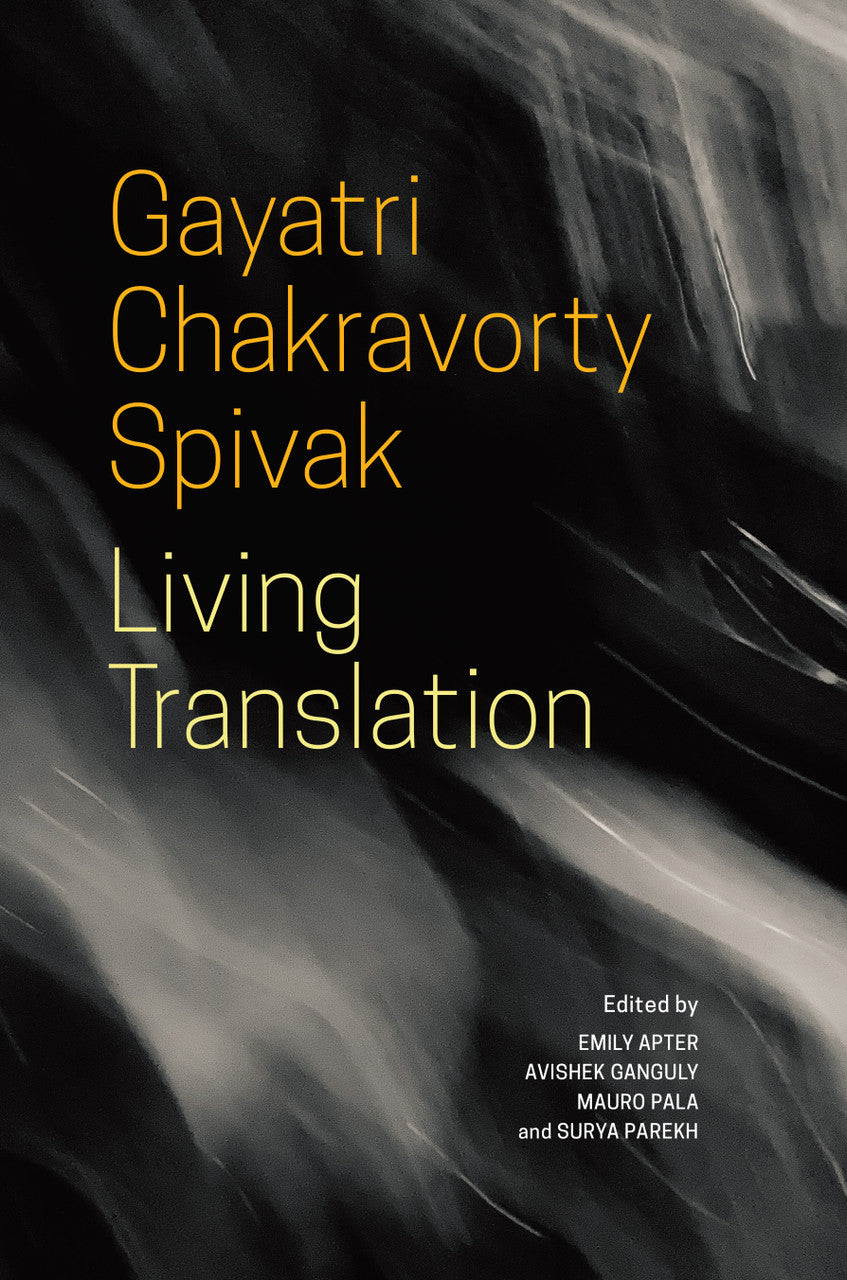Living Translation
Living Translation
- Description
- Details
- Shipping
A collection that brings together Spivak’s wide-ranging writings on translation for the first time.
Living Translation offers a powerful perspective on the work of distinguished thinker and writer Gayatri Chakravorty Spivak, revealing how, throughout her long career, she has made translation a central concern of the comparative humanities.
Starting with her landmark ‘Translator’s Preface’ to Jacques Derrida’s Of Grammatology in 1976, and continuing with her foreword to Mahasweta Devi’s Draupadi and afterword to Devi’s Chotti MundaandHis Arrow, Spivak has tackled questions of translatability. She has been interested in interrogating the act of translation from the ground up and at the political limit. She sees at play at border checkpoints, at sites of colonial pedagogy, in acts of resistance to monolingual regimes of national language, at the borders of minor literature and schizo-analysis, in the deficits of cultural debt and linguistic expropriation, and, more generally, at theory’s edge, which is to say, where practical criticism yields to theorizing in untranslatables. This volume also addresses how Spivak’s institution-building as director of comparative literature at the University of Iowa—and in her subsequent places of employment—began at the same time. From this perspective, Spivak takes her place within a distinguished line-up of translator-theorists who have been particularly attuned to the processes of cognizing in languages, all of them alive to the coproductivity of thinking, translating, writing.
- ISBN: 9781803091136
- Pages: 308
- Size (inches): 6 x 9
- Format: Paperback
- Publication Year: 2022
- Category: Philosophy, Culture Studies and Literary Criticism
If you are ordering from India, your order will be shipped from Seagull Books, Calcutta. Shipping is free for orders above ₹999.
If you are ordering from the US or the UK or anywhere else in the world, your order will be shipped from the University of Chicago Press' distribution centre, Chicago.
Please note: For customers paying in currencies other than Indian rupee or US dollar, prices will be calculated according to the currency conversion rate at the time of purchase and may vary from the printed price.
Couldn't load pickup availability
Share

About Us
Seagull Books (estd 1982) has been crafting books with an eye to both exceptional content and radical design. What began highly risky business of publishing books-books on alternative cinema, philosophy, culture-continues to be a passionately felt need of the hour: manuscripts that need to see the light of day, instinctive and theatre, visual arts, to reach a readership, to stimulate minds, to change outlooks. Read More
Subscribe to our newsletter
- Choosing a selection results in a full page refresh.
- Opens in a new window.

